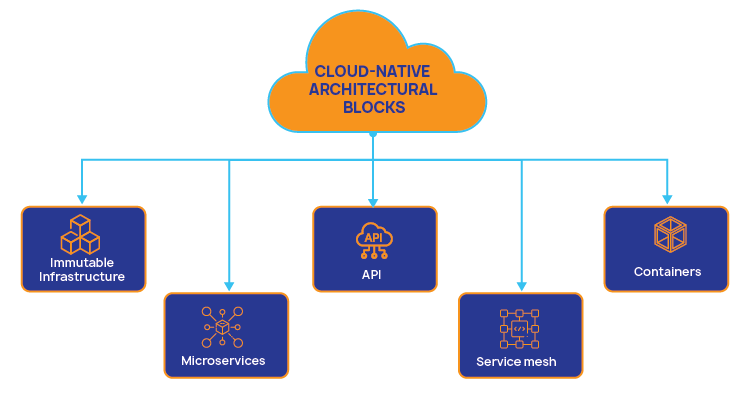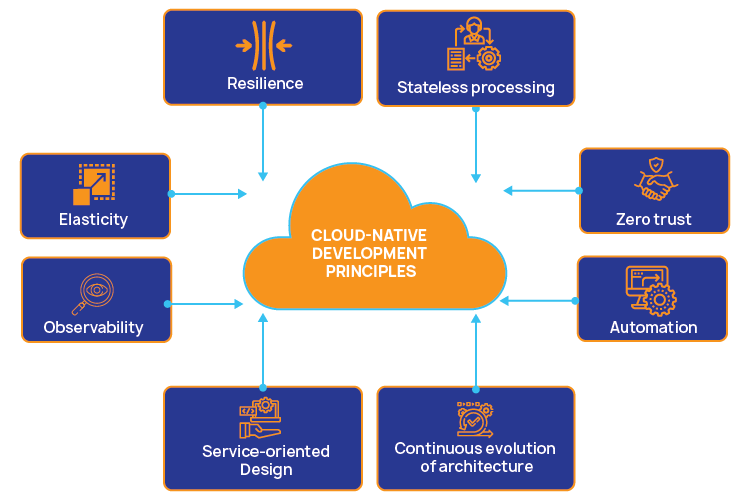

ACL Digital
5 Minutes read
The Rise of CloudOps: Managed Services Driving Cloud-Native Success
The cloud-native revolution is reshaping the way enterprises design, build, and deliver applications. By embracing containerization, microservices, and automation, organizations are unlocking new levels of agility and scalability to stay competitive. However, as businesses expand across multi-cloud and hybrid environments, managing distributed systems has become increasingly complex. Ensuring seamless performance, keeping costs in check, and maintaining compliance in such dynamic ecosystems demand more than traditional IT operations can provide.
This is where CloudOps comes into play. CloudOps represents the modern approach to running cloud-native applications, combining automation, monitoring, security, and governance into a unified operational framework. It enables enterprises to manage complexity, enhance reliability, and accelerate innovation, making it the essential backbone for long-term cloud-native success.
What is CloudOps?
CloudOps, short for Cloud Operations, is the practice of managing and optimizing cloud-based infrastructure, applications, and services to ensure seamless performance, availability, and security. It goes beyond the traditional IT operations model by introducing automation and cloud-native practices to handle the scale and speed of today’s digital environments.
Think of CloudOps as the natural extension of DevOps. While DevOps bridges development and operations for faster software delivery, CloudOps focuses on running and maintaining the cloud infrastructure that powers those applications. It ensures that once code is deployed, the underlying cloud environment remains reliable, secure, and cost-efficient.
The core pillars of CloudOps include:
- Automation: Reducing manual tasks with self-healing, auto-scaling, and deployment pipelines.
- Monitoring: Continuous visibility into application health, performance, and user experience.
- Governance: Enforcing compliance, security policies, and access controls across cloud platforms.
- Cost Optimization: Managing usage and expenses to maximize ROI from cloud investments.
Together, these elements make CloudOps the backbone of sustainable cloud-native success.
Why CloudOps is Essential for Cloud-Native Success
In a cloud-native world, applications are designed for speed, scalability, and continuous evolution. Teams rely on continuous delivery and deployment at scale, pushing updates rapidly to meet changing customer demands. Without a structured operational model like CloudOps, this pace can quickly lead to instability, security gaps, and cost overruns.

CloudOps ensures the right balance of reliability, agility, and operational efficiency. It provides the automation and monitoring needed to keep services running smoothly, while enabling organizations to adapt quickly to market demands. More importantly, it supports the unique challenges of dynamic infrastructure, microservices architectures, and containerized workloads, where traditional operations models often fall short.
By aligning cloud management with modern development practices, CloudOps becomes the foundation for cloud-native success—empowering enterprises to innovate without compromising performance or stability.
The Role of Managed CloudOps Services
While CloudOps is critical for cloud-native success, building and maintaining these capabilities in-house can be resource-intensive. This is where managed CloudOps services make a difference. They bring specialized expertise, advanced tools, and proven frameworks to ensure that enterprises get the full value from their cloud investments without the overhead of managing operations alone.

Managed services provide end-to-end operational support, covering everything from provisioning and configuration to monitoring, backup, disaster recovery, and compliance management. With proactive monitoring and automation, they help identify and resolve issues before they impact business continuity. Security and governance are also embedded, ensuring enterprises stay compliant with industry regulations while maintaining a strong security posture.
By outsourcing CloudOps, organizations reduce the in-house operational burden, freeing up teams to focus on innovation and customer experience. At the same time, managed services accelerate time-to-market, as enterprises can scale their applications and roll out new features faster without worrying about the underlying infrastructure.
Core Capabilities of a Strong CloudOps Framework
A robust CloudOps framework is built on key capabilities that ensure cloud environments are reliable, secure, and cost-effective. These capabilities form the foundation for running cloud-native applications at scale:
- Infrastructure as Code (IaC): Automating infrastructure provisioning and management through code to enable consistency, repeatability, and faster deployments.
- Automated Scaling and Self-Healing Systems: Dynamically adjusting resources to meet demand and automatically recovering from failures without manual intervention.
- Observability (Logging, Monitoring, Alerting): Gaining end-to-end visibility into systems to detect issues early, monitor performance, and ensure optimal user experience.
- Security, Compliance, and Governance: Embedding policies and controls across the cloud lifecycle to safeguard data, meet regulatory standards, and prevent risks.
- Cost Control and FinOps Integration: Actively managing cloud spending through visibility, optimization strategies, and alignment with financial operations.
Together, these capabilities make CloudOps not just an operational model, but a strategic enabler of cloud-native success.
Benefits of Adopting CloudOps through Managed Services
Embracing CloudOps through managed services allows enterprises to harness the full potential of cloud-native environments while reducing complexity and overhead. Some of the key benefits include:
- Faster Time-to-Market: With expert-managed operations, businesses can roll out new features and services more quickly without being slowed down by infrastructure challenges.
- Enhanced Reliability and Availability: Proactive monitoring, self-healing systems, and disaster recovery ensure uninterrupted service delivery.
- Operational Efficiency: Automation eliminates repetitive tasks, freeing teams to focus on innovation and strategic priorities.
- Optimized Costs: FinOps-driven cost management ensures cloud resources are utilized effectively, preventing overspending.
- Stronger Security and Compliance: Managed services integrate governance, risk management, and compliance to safeguard sensitive data.
- Scalability on Demand: Dynamic scaling supports peak loads and business growth without compromising performance.
Key Considerations for Choosing a CloudOps Provider
Selecting the right CloudOps provider is critical for ensuring long-term success in cloud-native adoption. Enterprises should evaluate providers based on:
- Expertise Across Major Cloud Platforms: A strong provider should have proven capabilities in AWS, Azure, and Google Cloud to support multi-cloud and hybrid strategies.
- Support for Containerized and Serverless Workloads: Cloud-native environments depend heavily on Kubernetes, Docker, and serverless frameworks, requiring deep operational expertise.
- SLA-Backed Performance and Incident Management: Reliable providers must commit to uptime, availability, and rapid incident response through clear service-level agreements.
- Integration with CI/CD Pipelines and DevSecOps: Seamless alignment with development workflows ensures faster releases, stronger security, and improved collaboration across teams.
How ACL Digital Empowers Cloud-Native Journeys with CloudOps
At ACL Digital, we help businesses unlock the full potential of their cloud investments through end-to-end CloudOps capabilities. Our expertise spans AWS, Azure, and GCP, enabling enterprises to manage multi-cloud and hybrid environments with ease.
We offer a customized managed services model tailored to different stages of cloud maturity—whether organizations are just beginning their cloud-native journey or scaling complex workloads. With real-time monitoring, predictive analytics, and continuous optimization, ACL Digital ensures that applications run securely, reliably, and cost-effectively.
Beyond technology, we design industry-specific CloudOps strategies that align with business goals, compliance requirements, and market dynamics. By integrating automation, DevSecOps practices, and FinOps-driven cost control, ACL Digital empowers enterprises to accelerate innovation, improve operational efficiency, and achieve long-term cloud-native success.
Conclusion
As enterprises continue their shift to cloud-native models, CloudOps has become the backbone of sustainable success. It brings together automation, monitoring, governance, and cost control to ensure that cloud environments remain reliable, secure, and scalable. By leveraging managed CloudOps services, businesses can reduce operational complexity, accelerate time-to-market, and focus more on innovation rather than infrastructure challenges.
With the right CloudOps strategy and a trusted provider like ACL Digital, organizations can confidently navigate multi-cloud and hybrid environments, unlocking agility, resilience, and long-term business value. The future of cloud-native success lies in smarter operations—and CloudOps is leading the way. For further information, get in touch with our experts at business@acldigital.com.
Related Insights



Top 5 Hard Truths About Your Governance Strategy

ETL Simplified: Storing and Transforming Data Fully Inside Databricks


